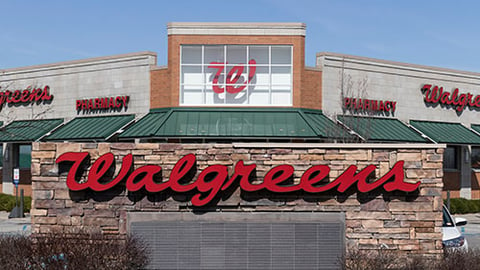FTC Goes After Amazon
Amazon is the target of a high-profile, high-stakes lawsuit, brought by the U.S. government through the Federal Trade Commission. Attorney generals from 17 states joined the legal action, contending that the retail behemoth is using unfair strategies in both its online market for shoppers and its market for online marketplace services purchased by sellers.
“Our complaint lays out how Amazon has used a set of punitive and coercive tactics to unlawfully maintain its monopolies,” explained FTC Chair Lina M. Khan. “The complaint sets forth detailed allegations noting how Amazon is now exploiting its monopoly power to enrich itself while raising prices and degrading service for the tens of millions of American families who shop on its platform and the hundreds of thousands of businesses that rely on Amazon to reach them. Today’s lawsuit seeks to hold Amazon to account for these monopolistic practices and restore the lost promise of free and fair competition.”
[Read more: “House Bill on Fair Competition Greenlighted”]
In the filing, the FTC and state attorneys general argue that other retailers and suppliers are excluded from competing with Amazon through its practices related to pricing, product selection and other business aspects. The lawsuit also calls out Amazon’s Prime service, alleging that the company conditions sellers to obtain Prime eligibility for their products using the company’s “costly” fulfillment arrangements.
The agency did not mince words in its proclamation, as John Newman, deputy director of the FTC’s Bureau of Competition, said, “Amazon is a monopolist that uses its power to hike prices on American shoppers and charge sky-high fees on hundreds of thousands of online sellers. Seldom in the history of U.S. antitrust law has one case had the potential to do so much good for so many people.”
Amazon quickly fired back. “Today’s suit makes clear the FTC’s focus has radically departed from its mission of protecting consumers and competition. The practices the FTC is challenging have helped to spur competition and innovation across the retail industry, and have produced greater selection, lower prices, and faster delivery speeds for Amazon customers and greater opportunity for the many businesses that sell in Amazon’s store,” said David Zapolsky, Amazon’s SVP of global public policy and general counsel. “If the FTC gets its way, the result would be fewer products to choose from, higher prices, slower deliveries for consumers, and reduced options for small businesses — the opposite of what antitrust law is designed to do. The lawsuit filed by the FTC today is wrong on the facts and the law, and we look forward to making that case in court."
The lawsuit has already spurred ripples of reaction in the greater marketplace. Some, like the Consumer Choice Center, defended Amazon. "Consumers know they're getting a myriad of benefits with their Prime subscription, whether that's faster delivery, cheaper prices, or bundled services like data storage and content streaming. That's what consumers want, and why millions buy from Amazon every day,” said Yaël Ossowski, deputy director of that consumer advocacy group. "Consumers have overwhelmingly had their welfare increased because of Amazon's products and services. Government efforts to break that up are harmful to consumers.”
[Read more: "FTC Sues Amazon Over 'Manipulative’ Tactics Used for Prime Enrollment"]
Geoffrey A. Manne, president and founder of the International Center for Law and Economics in Portland, Ore., also chimed in, noting that the idea of the lawsuit was expected but the actual complaint represented a greater reach. “What was less expected is the sheer breadth of the suit, and the far-reaching remedies that are being demanded. These extreme demands greatly undermine the chances that the agency will prevail in court," Manne declared.
Another group dissented with those assessments. “Today the FTC took a first step to restoring the liberty of every individual and business who relies on essential internet platforms to exchange goods, services, and ideas with one another. The FTC did so by targeting some of the most egregious abuses by Amazon of the dominant position it has acquired over vast swaths of online commerce, and the corporation’s routinized manipulation of other people’s business for its own private purposes,” remarked Barry Lynn, executive director of the Open Markets Institute of Washington, D.C.
Notably, the online perishable grocery category is not part of the FTC’s complaint. As the legal filing notes, “Consumers’ experiences when shopping online for perishable groceries differ from their experiences purchasing other retail goods. For example, consumers shopping for online perishable grocery products typically must select a specific time for the perishable grocery products to be delivered, which often also requires the customer to be present at the time of delivery to be able to promptly store those items…The process for packaging and delivering perishable groceries to shoppers who ordered them online also differs from non-perishable grocery orders. Perishable groceries require special handling, often including refrigeration or freezing, as well as quick and careful delivery to avoid damage or rot.” The suit also points out that competition for online perishable grocery sales is different from competition between online superstores.
Seattle-based Amazon is No. 2 on The PG 100, Progressive Grocer’s 2023 list of the top food and consumables retailers in North America. PG also named the company one of its Retailers of the Century.






